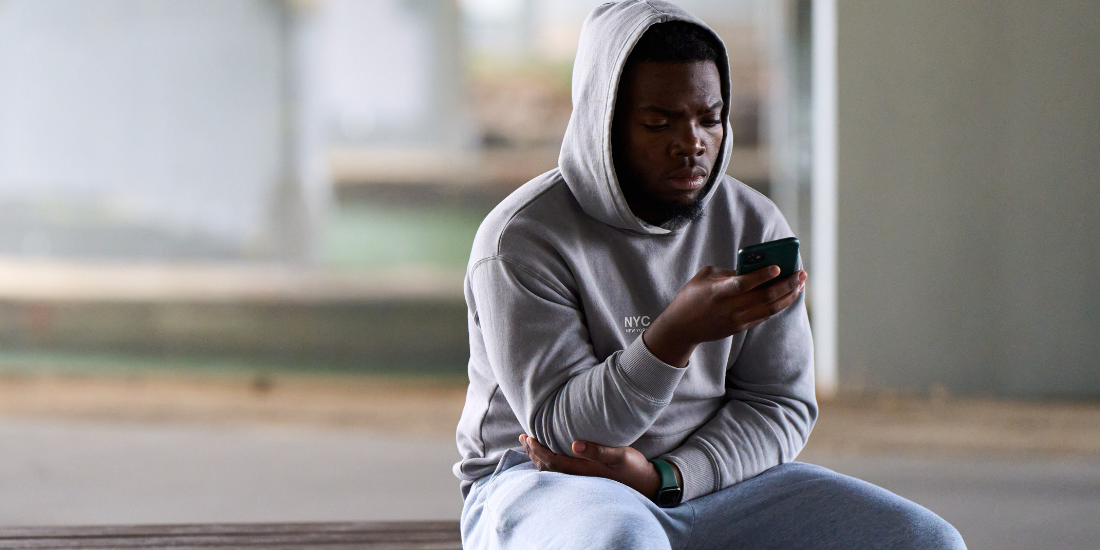
A new study by Orygen, and men's health charity Movember, has developed a new theory to explore the difficulties encountered by young men when dealing with anxiety.
Researchers found that their struggles with anxiety were long, hard fought, and shaped by their gender, age, and ethnicity.
They also found that traditional ideas about what it means to be a man made it harder for them to recognise that they are struggling and to seek help.
Published in Sociology of Health and Illness, the study included interviews with young men aged 15-25 years who had been diagnosed with an anxiety disorder or were self-reporting anxiety symptoms, to develop a world-first theory of young men’s anxiety called Resisting-Reckoning-Responding – or the Triple-R Anxiety model.
The Resisting-Reckoning-Responding model is a way of understanding how young men experience anxiety. At first, young men may not realise they are feeling anxious, and they may try to ignore or distract themselves from the feeling. Eventually, those that start to name and understand feelings of anxiety, are better able to accept the feeling, take steps to get help and use strategies to cope with it.
Lead author of the study, Krista Fisher said this model can help us better understand how young men handle anxiety and come up with better ways to help them.
“Anxiety disorders are the most common mental health issue among men worldwide yet until now, it has been widely overlooked in men’s mental health research, public health campaigns and mental health resources.
“11 per cent of the global male population are diagnosed with an anxiety disorder in a given year, and over a hundred million men have been diagnosed with an anxiety disorder in their lifetime.(1)
“Symptoms of anxiety usually start in childhood or early adolescence,” she said.
The young men often experienced physical symptoms like headaches, nausea and muscle pain, but usually didn’t connect them to anxiety. When the symptoms persisted, the men engaged in avoidance strategies such as denying and distracting, which the researchers found to be ineffective in the long run.
“Young men may cope with anxiety by using drugs and alcohol, or by relying on problem-based coping strategies, for example confronting problems, searching for solutions and seeking information,” Fisher said.
“Once the young men gained insight into the effects of their anxiety, they were more likely to seek help.
“However, traditional masculine norms that typically emphasise the importance of strength, independence, and dominance – can often make it difficult for men to seek help for anxiety, as worries and fears are sometimes seen as unmanly,” she said.
One participant felt that his uncertainty about how to fit in with masculine norms and other men was a trigger for his anxiety.
“I think masculinity is the main topic or the main umbrella, and then anxiety falls underneath that, rather than it being on the contrary because I think it all starts from the top in the way that men talk, act, speak, perceive other people,” *Oscar, 21 years.
“Despite the fact that more young men have been struggling with anxiety, there is not enough research that looks into what it feels like to have anxiety, why it happens, and how it affects them,” Fisher said.
“The findings of the study, which depict the gendered dimensions of young men's anxiety, can be used to develop gender-sensitive resources and interventions that meet young men’s needs.
“This could include broadening potential lifesaving public health campaigns and men’s mental health online resouces, for example HeadsUpGuys, to encompass young men’s anxiety and upskilling men’s friends and family to open up – rather than shut down – conversations around anxiety, given they play a significant role in education around anxiety symptoms and support in peak time of distress.
“By taking these findings into account, we can help to ensure that young men receive the support they need to manage their anxiety in a healthy way,” Fisher said.
* pseudonym
This study was funded by Movember.
1. Global Burden of Disease Collaborative Network. (2019). Global Burden of Disease Study 2019 (GBD 2019) results.